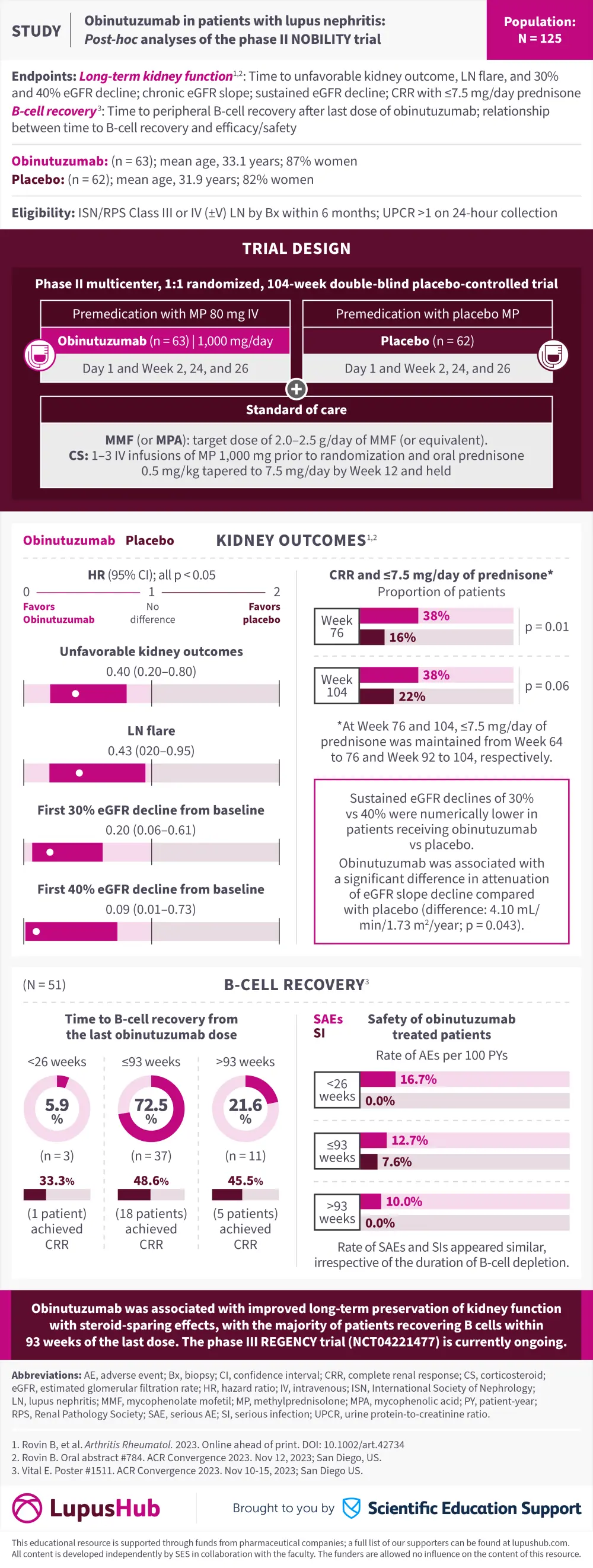All content on this site is intended for healthcare professionals only. By acknowledging this message and accessing the information on this website you are confirming that you are a Healthcare Professional.
The lupus Hub website uses a third-party service provided by Google that dynamically translates web content. Translations are machine generated, so may not be an exact or complete translation, and the lupus Hub cannot guarantee the accuracy of translated content. The lupus and its employees will not be liable for any direct, indirect, or consequential damages (even if foreseeable) resulting from use of the Google Translate feature. For further support with Google Translate, visit Google Translate Help.
The Lupus Hub is an independent medical education platform, supported through a founding grant from AstraZeneca. Funders are allowed no direct influence on our content. The levels of sponsorship listed are reflective of the amount of funding given. View funders.
Now you can support HCPs in making informed decisions for their patients
Your contribution helps us continuously deliver expertly curated content to HCPs worldwide. You will also have the opportunity to make a content suggestion for consideration and receive updates on the impact contributions are making to our content.
Find out more
Create an account and access these new features:
Bookmark content to read later
Select your specific areas of interest
View lupus content recommended for you
Visual abstract | Obinutuzumab in patients with LN: Post-hoc analyses of the phase II NOBILITY trial
Do you know... What was the earliest time to B-cell recovery for the majority of the patients with lupus nephritis treated with obinutuzumab in the phase II NOBILITY trial?
Obinutuzumab is a recombinant, humanized anti-CD20 monoclonal antibody.1 Treatment with obinutuzumab resulted in greater complete renal response at Week 52 (35% vs 23%; p = 0.115) and Week 104 (41% vs 23%; p = 0.026) in patients with lupus nephritis, versus placebo, meeting the primary endpoint of the phase II NOBILITY trial.1-3 No safety signals were reported.1
Below, we present a visual abstract summarizing a post-hoc analysis of the phase II NOBILITY trial on kidney outcomes with obinutuzumab, presented by Rovin et al.2 at the American College of Rheumatology (ACR) annual meeting (ACR Convergence 2023), and by Rovin et al.3 published in Arthritis Rheumatol. We also include a post-hoc analysis by Vital et al.3 on B-cell recovery with obinutuzumab, presented at the ACR Convergence 2023.

References
Please indicate your level of agreement with the following statements:
The content was clear and easy to understand
The content addressed the learning objectives
The content was relevant to my practice
I will change my clinical practice as a result of this content


